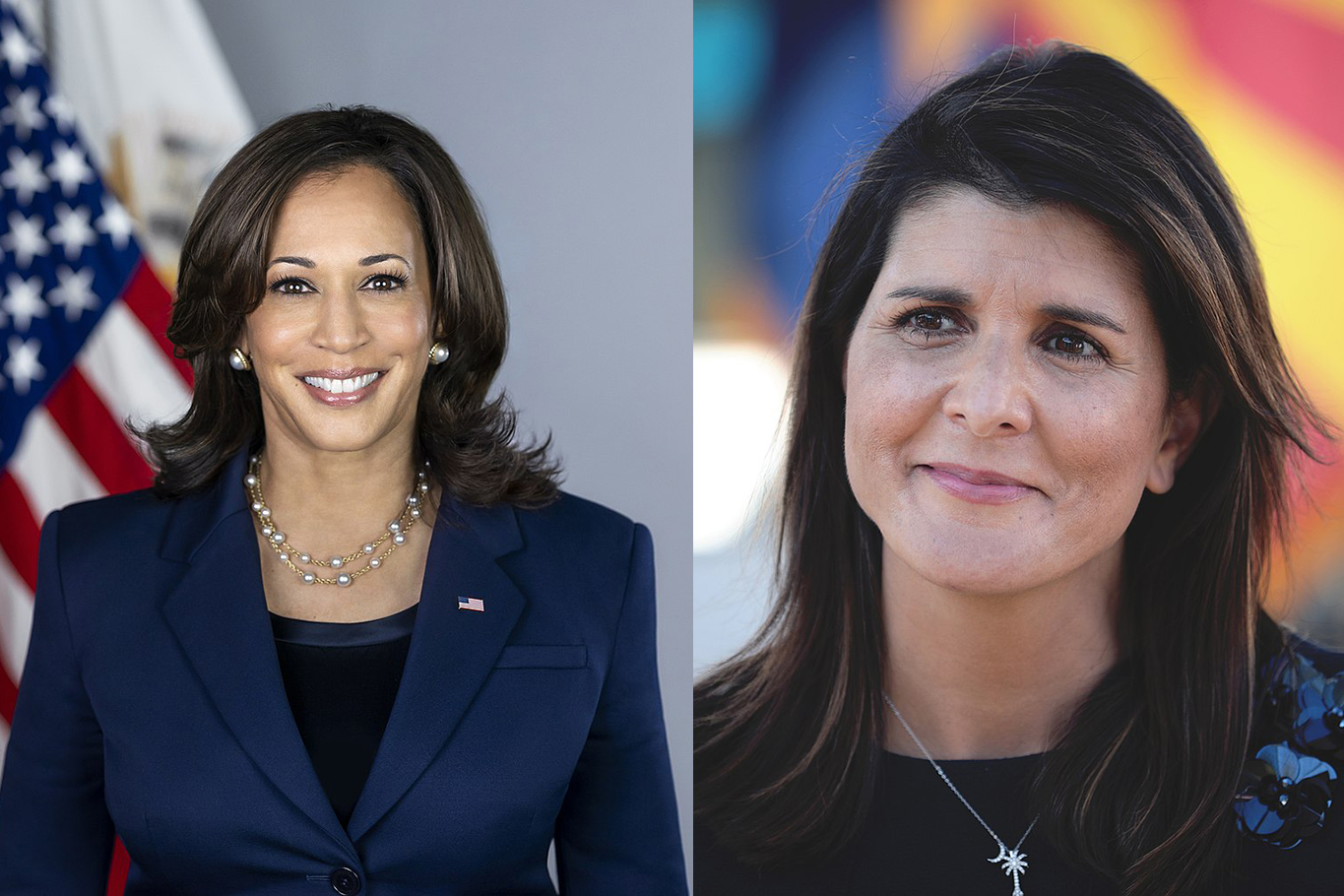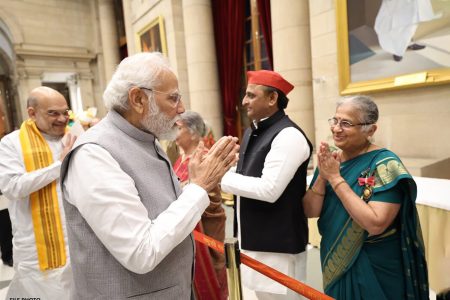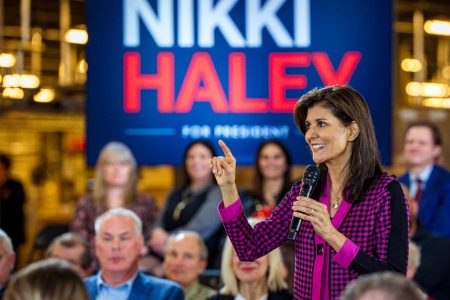 Indian American Republican presidential candidate Nikki Haley is positioning the 2024 White House race as a head-to-head battle with Indian American Vice President Kamala Harris. Haley is cautioning voters that the key objective of the 2024 election is to ensure that Democratic President Joe Biden’s running mate, Harris, doesn’t quietly ascend to the presidency, according to various media reports.
Indian American Republican presidential candidate Nikki Haley is positioning the 2024 White House race as a head-to-head battle with Indian American Vice President Kamala Harris. Haley is cautioning voters that the key objective of the 2024 election is to ensure that Democratic President Joe Biden’s running mate, Harris, doesn’t quietly ascend to the presidency, according to various media reports.
Haley has been actively sounding this warning through campaign events, social media, and television appearances. She argues that Biden, at 80 years old, won’t survive a second four-year term and is poised to pass the Oval Office to Ms. Harris. This argument is aimed at making the case that she is a more electable Republican candidate in a general election matchup compared to former President Donald Trump, whom she has described as “the most disliked politician in America.”
Haley’s rationale revolves around the belief that casting a vote for either Biden or Trump effectively translates to a vote for Harris, who has garnered one of the lowest approval ratings among vice presidents in recent history, as reported by the Washington Times. A substantial portion of voters, even within the Democratic Party where 69% share this view, believe that Biden, who will reach 82 years of age on Inauguration Day, is not suitable for another four-year term, as per an Associated Press-NORC Center for Public Affairs survey.
The speculation surrounding Biden’s ability to complete his campaign term, Harris’s readiness to step in, and the Democrats’ comfort with her as a Plan B option has generated intense scrutiny. Harris has faced scrutiny on various fronts, from her laughter to her policy expertise, since taking office as vice president.
However, in response to criticisms, Harris has remained resolute, stating in a CBS interview that attacks are prompted by the fear that her administration’s work alongside Biden could lead to electoral success. She confidently affirms her readiness to serve as president if required, while expressing confidence in Biden’s health.
Opinion polls show that Harris is viewed unfavorably by a significant margin, and this divisive focus on Harris by Haley may not significantly influence voters. Nonetheless, Nikki Haley, the first Indian American to serve in a presidential cabinet as the US ambassador to the United Nations under Trump, is determined to test the theory that the vice president’s role matters more in the 2024 election than in previous years. She aims to underscore the potential risk of Harris inheriting the presidency and the importance of this issue to voters.
The Washington Post has also noted Haley’s persistent message that a vote for Biden is essentially a vote for Harris. She has criticized Harris, labeling her as incompetent and unfit for the job. In her campaign, Haley has presented the idea of President Harris as something that should concern all Americans deeply. During Harris’s recent overseas trip, Haley reconfigured the election narrative to exclude Biden altogether.
Haley’s approach has started to influence other Republican presidential contenders, who are now also targeting Harris. They are incorporating images of the vice president in their ads and mentioning her in fundraising appeals. However, none have attacked Harris as vehemently as Haley, whose small-dollar donations surged when she initially predicted that Biden would not complete a second term and would be succeeded by Harris.
This provocative argument, lacking evidence, has gained attention in a race where Haley initially struggled to stand out. While some polls suggest that a strong performance in a recent Republican presidential debate has boosted her support, she still trails significantly behind the frontrunner, Donald Trump.
Haley has chosen Harris as a foil for her campaign and believes that it will resonate with voters, especially highlighting that she is the only woman among the Republican candidates. This strategy enables her to demonstrate strength without directly confronting Trump, aiming to avoid alienating his supporters. Importantly, Haley can counter accusations of sexism or racism by emphasizing her own identity as a woman of color.
For Indian American voters, who tend to lean Democratic, the competition between two influential politicians of their ethnic heritage adds an intriguing dimension to the race. The idea of a face-off involving individuals from the Indian subcontinent on the national stage creates curiosity and excitement within this demographic.










